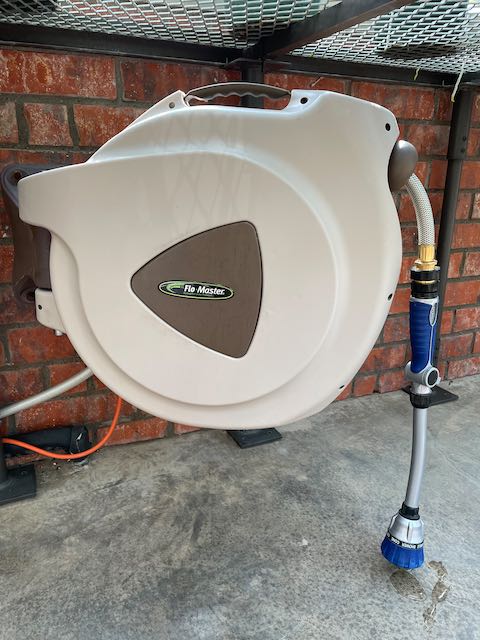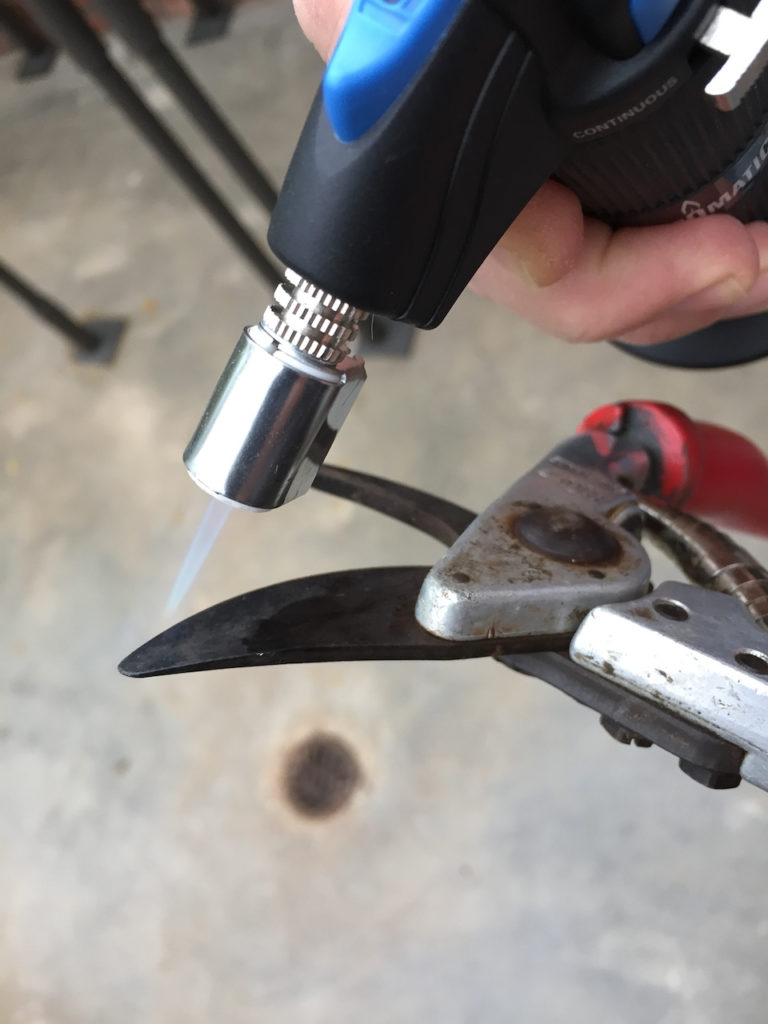Orchids are susceptible to diseases, too! Bacterial, fungal, and viral diseases can decimate a collection quickly; however, inspecting (scouting) your collection frequently, practicing good sanitation, and maintaining an optimal growing environment are key to their prevention.
First, let’s think about where disease organisms are likely to be…on the floor, sills, and benches, where plant debris falls and breaks down. Keeping plant debris picked up and removed from your growing area is a good first step to preventing disease. Wipe sills of your greenhouse or windows periodically with a disinfectant wipe, and rinse greenhouse benches and floors with a disinfectant, e.g. 10% chlorine bleach solution, quarterly to semi-annually.
Second, let’s think about what conditions favor fungal disease development — warm, moist air and surfaces. It’s important to water your orchid plants in the morning, so their surfaces will be dry by evening. Good airflow in the growing environment is critical to preventing stagnant air that is favored by fungal disease development. Use box fans below greenhouse benches and horizontal airflow fans (HAF) above the plants to keep air moving in a clockwise or counter clockwise pattern throughout the growing space. If growing orchids inside your home, use an oscillating fan or ceiling fan to keep air moving gently over and through your orchid plants.
Fungal diseases are often spread unknowingly by splashes of water, distributing fungal spores from one infected plant part to another. Thus, it’s important when watering, not to splash or spray water on the foliage, rather direct a gentle spray of water onto the potting media. Additionally, think about the nozzle on your watering hose. Do you let it touch the floor, where it can pick up disease organisms? Use a hose reel or hook to keep the nozzle from touching the floor.

Bacterial disease organisms are primarily spread by contaminated tools, pots, labels, plant stakes, and your hands. Unfortunately, there are no cures for bacteria-infected orchids, so avoiding bacterial disease through excellent sanitation is imperative. Thoroughly wash tools, pots, labels, and plant stakes with hot, soapy water and, then, rinse them in a disinfectant, e.g. 10% chlorine bleach solution, before reusing.
Viral disease organisms are primarily spread by contaminated cutting tools or your hands. Some insects, e.g. thrips, can transmit plant viruses, but they are not known to transmit the most common orchid viruses — Cymbidium Mosaic Virus (CymMV) and Odontoglossum Ringspot Virus (ORSV). These viruses can readily be spread from one plant to another when trimming spent flowers, removing old leaves, dividing or repotting an orchid plant, or inserting a plant stake. There are no cures for virus-infected orchid plants, so scouting, sanitation, and virus testing are critical.
I carry two pruning shears and a small butane torch with me in the greenhouse. Immediately after pruning one plant, I use the torch to heat the pruning shears’ cutting edges, and, then, use the other (cool) pruning shear on the next plant. This way, I always have at least one cool, sanitized pruning shear ready to use.

Hands, especially fingernails, can transmit disease organisms from one plant to another. If you tend to pick off spent flowers and old leaves with your fingers, wash your hands or wear a fresh pair of latex or nitrile gloves between handling orchid plants, especially when repotting.
When walking through the greenhouse each day, inspecting my orchid plants, I make note of any issues requiring my intervention, e.g. pests or suspected disease. Know the signs of disease.
- Fungal diseases often appear as brown spots on foliage or pseudobulbs.
- Bacterial diseases often appear as wet, softened, discolored tissue (often black or brown), particularly on pseudobulbs.
- Viral diseases often appear as unusual patterns of lighter and darker green on leaves or streaks of a different color on flowers.
With good scouting, sanitation, and growing environment, you can avoid the disappointment of losing a plant, or worse an entire collection, to disease.
